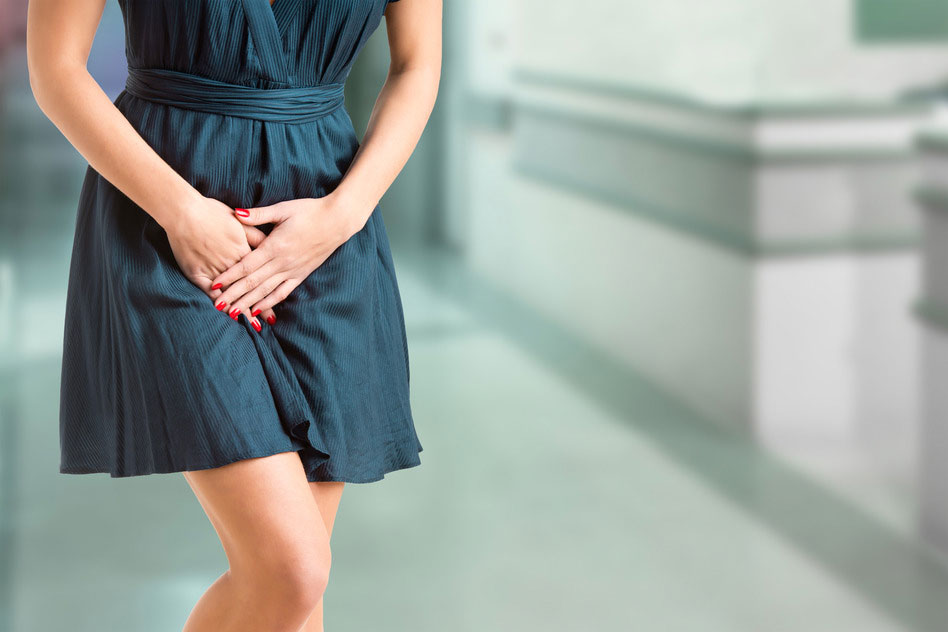|
Urinary incontinence is the loss of bladder control leading to unintentional passing of urine. Millions of people experience this problem of which more than 45% are women. These women feel ashamed, embarrassed or uncomfortable talking about this problem with only a few others shooting out their personal experiences openly. Rest of them silently suffer as they are too shy to express it. They even stop going out fearing accidental passing of urine, it affects their sex life and might lead to depression. We can see clearly that urinary incontinence is not just a medical problem but one that affects emotional, psychological and social life of people.
The Process of Urine Flow The urinary tract acts as the body’s drainage system to remove urine which is a combination of wastes and unwanted fluids. Urinary function is the synchronous coordination of brain and bladder. The urine is stored in the bladder until the brain sends a signal to it that you are ready to urinate. After this, the bladder muscles contract and force the urine out of the urethra (this is a tube that carries urine from the body). Types of Urinary Incontinence This problem is of different types: Stress incontinence: Urine leaks when the bladder is under pressure. Coughing, laughing, sneezing, sex, exercises like running and jumping or even sex can cause urine leakage. This is commonly seen in younger women who have given birth vaginally. Stress incontinence is the result of weakening of or damage to the muscles (pelvic floor muscle or urethral sphincter) used to prevent urination. Urge Incontinence: Sometimes, we feel an urge to urinate and during every such feeling, urine leaks immediately or soon after. This is commonly seen in obese/overweight women, women with dementia, stroke or diabetes and is due to the overactivity of the detrusor muscles that control the bladder. Overflow Incontinence: Individuals rarely are unable to fully empty their bladder and this might cause frequent leaks. There is a blockage or obstruction to the bladder that prevents it from emptying fully. Total incontinence: This happens when the bladder can’t store any urine at all and this makes you pass urine constantly or have frequent leaking. This can be due to a bladder problem from birth, a spinal injury or a bladder fistula. Some people have a mix of both, stress and urge urinary incontinence. Common Causes of Urinary Incontinence Certain reasons that increase the chances of urinary incontinence include:
Comments are closed.
|
AVOID FRAUD. EAT SMART.+91 7846 800 800
AuthorDietitian & Nutritionist Dr. Nafeesa Imteyaz. Archives
July 2024
Categories
All
Dr. Nafeesa's Blog @blogspot |
- Home
- Written Testimonials
- Consult
- Clinics
- Blogs
-
Diet & Nutrition
- Diabetes Reversal
- IVF IUI not needed for PCOS PCOD Infertility
-
Medical Nutrition
>
-
Disease & Conditions
>
- Infertility | PCOS
- Diabetes Mellitus
- Cholesterol
- Hypothyroid
- Kidney Problems
- Hypertension
- Cardiovascular Diseases
- Liver Diseases
- Gastro intestinal disorder
- Cancer
- Metabolic Disorders
- Orthopedic Disorders
- Eating Disorders
- Dietary Recall
- Weight Record Filled By Clients
- Online Payment Transaction Details
- Online Clients Weight Check Form
- Our Program Package Service Charges
- Weight Record 2017 Clients
- Measurements sent by Clients
- Terms & Conditions Of Payment
- Thanks. Your Form is Submitted
- Video Testimonials
- Lifestyle & Wellness
- Lifestyle & Wellness Blog
- Allergy & Intolerance
- Weight Loss / Gain
- Weight Loss / Slimming Blog
-
Disease & Conditions
>
- Life Cycle Nutrition >
- Sports Nutrition >
- Integrity in Nutrition
- Knowledge Centre
© COPYRIGHT 2022. ALL RIGHTS RESERVED. FRST HEALTHCARE PVT LTD.
Dr. Nafeesa Imteyaz of First Eat Right clinic, is the Best Dietitian Nutritionist in Bangalore. Best Dietitian Nutritionist in Pune. Best Dietitian Nutritionist in Hyderabad. Best Dietitian Nutritionist in Chennai. Best Dietitian Nutritionist in Mumbai. Best Dietitian Nutritionist in Delhi. Best Dietitian Nutritionist in Kolkata.


